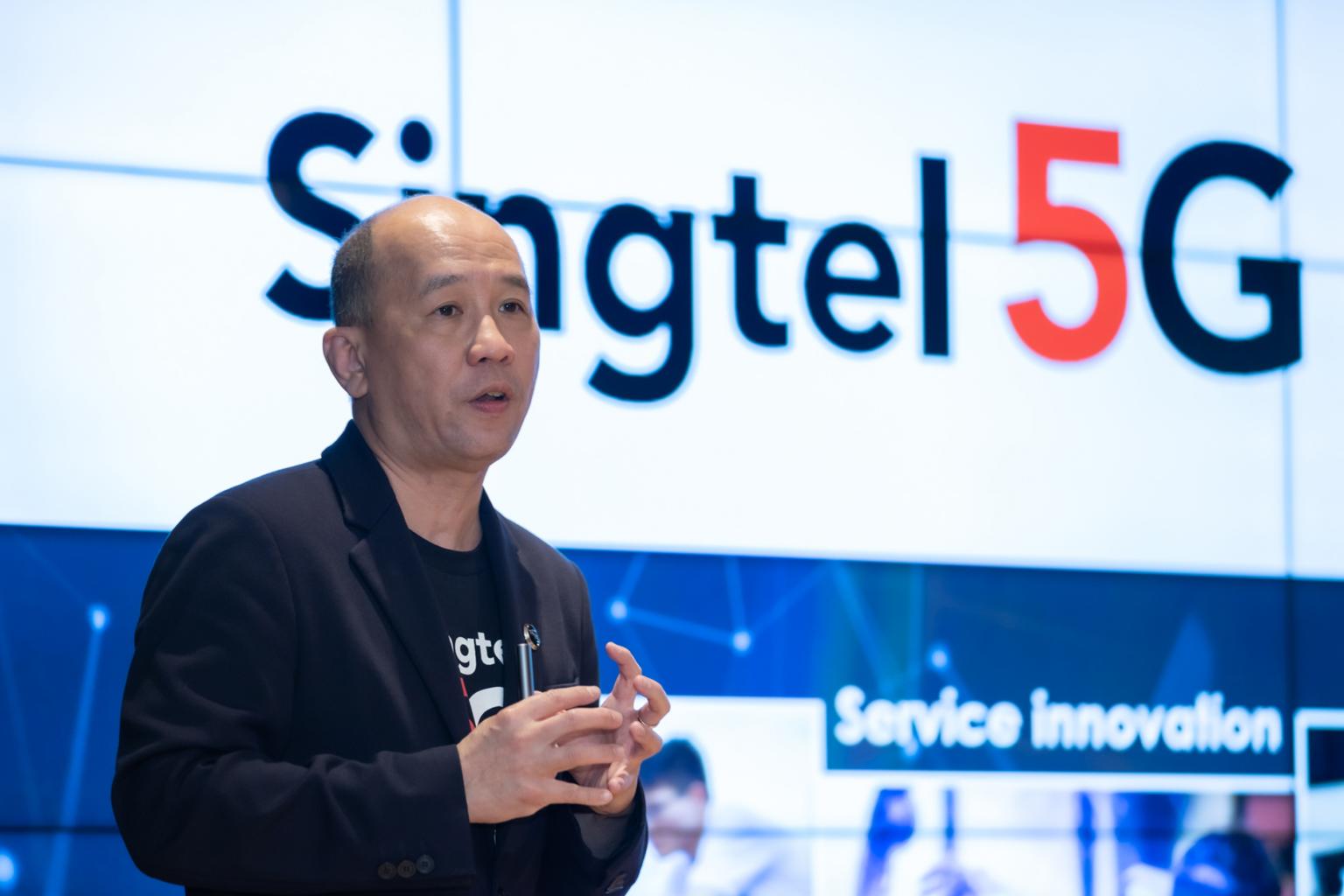Singtel launches 5G standalone trial network for enterprises
Sign up now: Get ST's newsletters delivered to your inbox

Singtel’s chief executive for its Singapore consumer operations Yuen Kuan Moon speaking during the unveiling of Singtel's 5G Now@Unboxed pop-up store on Sept 9, 2020.
PHOTO: SINGTEL
SINGAPORE (THE BUSINESS TIMES) - Singtel has deployed Singapore's first 5G standalone trial network at its testing facility.
The network offers enterprises early access to 5G to develop and trial 5G solutions, the telco said in a press statement on Thursday (Oct 8).
It uses 3.5 gigahertz spectrum and Ericsson's advanced Massive MIMO (multiple-input multiple-output) technology to deliver ultra-fast speeds and low latency or response times.
Bill Chang, chief executive officer (CEO) of group enterprise at Singtel, said: "With 5G's low latency and scalability, enterprises can not only drive efficiencies and make better and more cost-effective decisions, but also deliver richer customer experiences."
Interested enterprises can register at Singtel's website and test-bed 5G applications and technologies at the telco's 5G Garage testing facility at no charge.
Global cloud-gaming provider Ubitus has used Singtel's 5G standalone network for a 5G cloud-gaming trial, which consistently delivered an 85 per cent lower latency of between eight and 11 milliseconds compared to cloud gaming on 4G.
The Ubitus trial was conducted on Singtel's multi-access edge computing (MEC) platform, which integrates 5G's ultra-low latency and high bandwidth capabilities with power cloud computing performance.
The telco said this allows rich graphics to be processed on dedicated services and transferred directly to devices - significantly cutting lag times, which is critical to the gaming experience.
Ubitus CEO Wesley Kuo noted that the trials will inform the company's designs for games that will test gamers' reflexes and instincts. "We will leverage the ultra-low latency of 5G and MEC to offer immersive, hyper-realistic gaming experiences," he added.
5G and MEC can be integrated with technologies such as Internet of Things, analytics, robotics, artificial intelligence as well as augmented, virtual or mixed reality.
This enables enterprises across industries to leverage the low latency in applications, requiring little or no lag time, Singtel said in its statement. Examples include remote surgery, smart manufacturing, autonomous driving, remote robotic repair and maintenance, and virtual reality-enabled live concerts.
MEC removes the need for data to be sent to public clouds to be processed and sent back.
In September, Singtel unveiled its first 5G use case with its round-the-clock unmanned pop-up retail store named Now @ Unboxed.
The standalone trial network also follows Singtel's recent launch of its 5G non-standalone network, which rides on existing 4G infrastructure, to offer consumer and enterprise customers an early taste of 5G mobile speeds.
Singtel last month said it is pacing its investment for 5G deployment, and is on track to roll out its 5G network coverage to half the island in two years' time and nationwide by 2025.
Two other telcos M1 and StarHub plan to jointly roll out a standalone 5G network next year, with Singtel the other winning bidder tapped to operate a nationwide standalone 5G network.
The Infocomm Media Development Authority has partnered mobile network operators in Singapore to hire and reskill 1,000 professionals to support the Republic's 5G rollout.
Separately, Singtel last week announced its group CEO Chua Sock Koong will retire on Jan 1, 2021, while her successor will be Singapore consumer head and group chief digital officer Yuen Kuan Moon.


